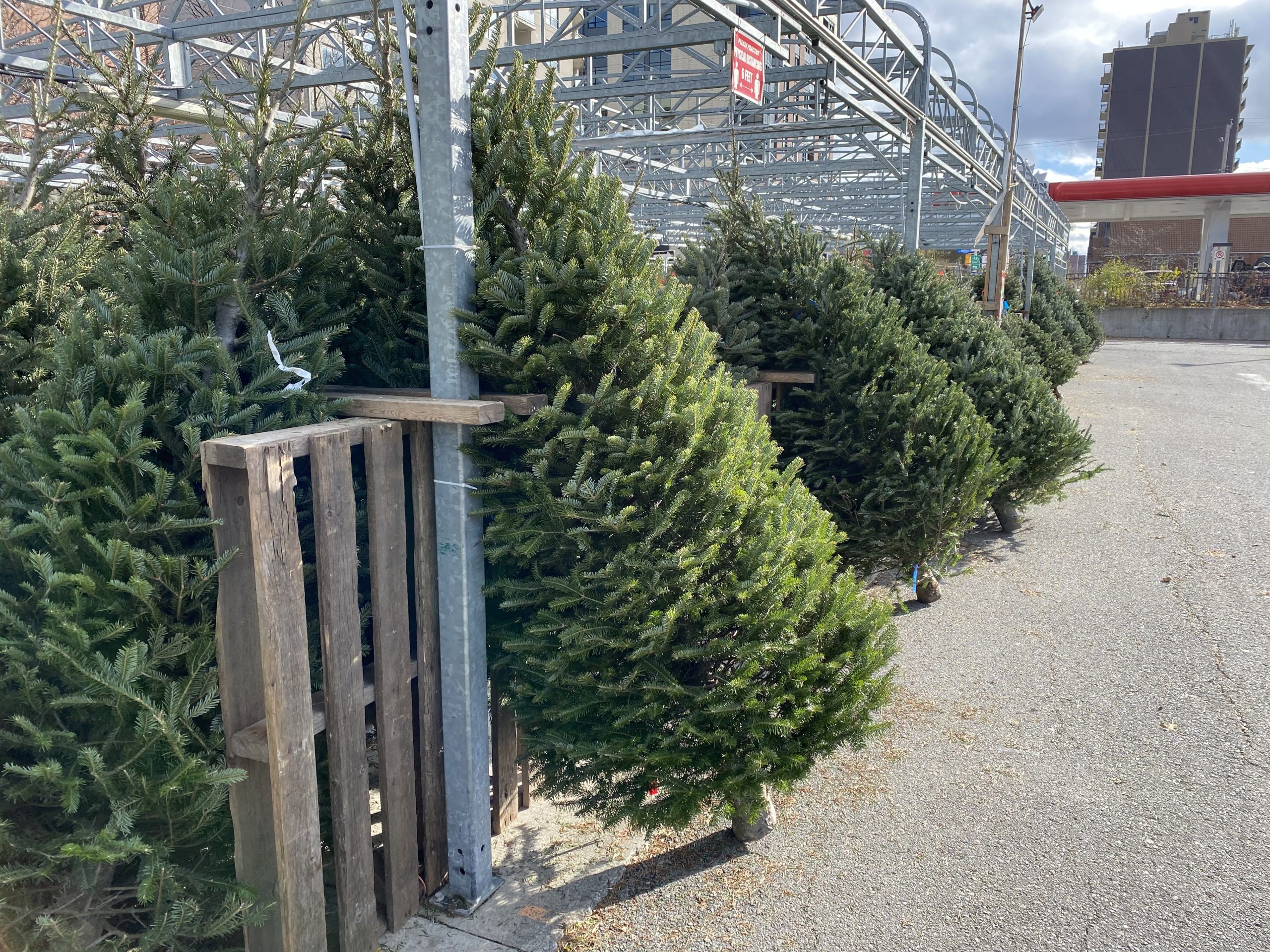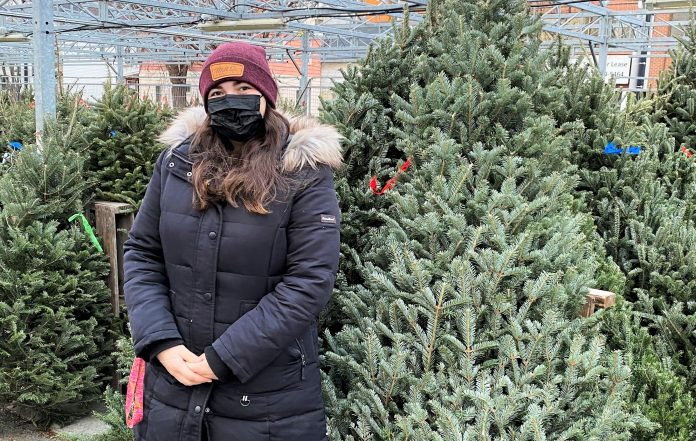By Alvin Tsang
There is a Christmas tree shortage this year.
Sara Cleroux, who helps her dad Manuel Cleroux run the Christmas tree shop at the Parkdale Public Market, says that the approximately 200 trees available for sale at the Parkdale Market is the whole supply for the season.
“Right now, a lot of the tree farmers don’t have enough trees,” Cleroux said. “Some of them are retiring, and a lot of trees are going to the U.S. because of various issues.”
Shirley Brennan, executive director of the Canadian Christmas Trees Association, pinpoints exactly where the supply and demand chain is disrupted.
“What’s happening is there is a shortage of trees all across North America,” Brennan said. “So it’s not just an Ontario thing or a Kitchissippi thing. It’s not even a Canadian thing.”
Shirley Brennan SAID.
Christmas tree farms operate on a 10-year cycle, unlike other farming commodities where seeds and saplings are planted in the spring and ready for harvest season.
“A few things have happened to affect the supply and demand of the 10-year cycle,” Brennan said.
The first was unexpected climate conditions, Brennan explained. In June 2018, unexpected frost damaged a large crop of trees in Nova Scotia—seedlings and younger trees were ruined and mature trees were damaged. The frost incident affected the Nova Scotia Christmas tree market during that year and all the following years, with the impact being felt across other regions, including Ontario.
“And we all know what’s happening in B.C.,” Brennan said. “The floods right now are affecting farmers and wholesalers nationally. They can’t get their trees to market in B.C., and earlier this year, they had extreme heat and forest fires. Mother Nature hasn’t cooperated with us, and what we’re seeing is a decrease in farms.”

The average Christmas tree farmer is in the age group of 70-75 years old, and not many have succession plans to include someone to take over the farm.
“We’re seeing less farms, less trees and an aging population of farmers,” Brennan said. “So it’s a whole lot of things that have come to fruition all at once this year.”
Surprisingly, the COVID-19 pandemic hasn’t been a negative factor for the Christmas tree supply and demand in any way, according to the association.
“We’re seeing the same crowds,” she said. “As a whole, the Christmas tree shortage doesn’t have anything to do with the pandemic.”
Brennan offers a piece of advice to anyone who might be worried they might not be able to get a Christmas tree this year.
“It’s okay to get your Christmas tree early if you’re worried about the shortage,” she said. “Just don’t bring the tree into your house. Keep it in a cool damp place and out of the elements. You don’t want it sitting in the sun or wind. A lot of people do this every year—they don’t bring the tree inside until the second week of December, and the tree will last until January with no problems.”
